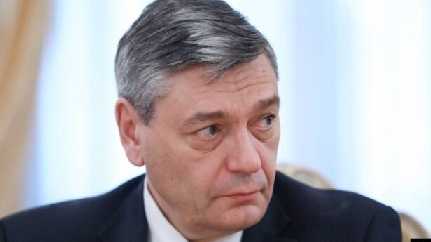
KUALA LUMPUR, Mac 30 (NNN-BERNAMA) – Asia-Pacific’s prosperity lies in peaceful co-existence not harmful bloc politics, as championed by some seeking to use the region as part of a confrontational strategy, a Russian official said here, yesterday.
Citing the need for close cooperation across the region, to ensure the smooth functioning of international trade, and to ensure peace and stability, Russia seeks close cooperation with partners in the region, Russia’s Deputy Foreign Minister, Andrey Rudenko, said, in a lecture “Russia’s Policy in the Asia-Pacific Region,” delivered at the Asia-Europe Institute (AEI) of Universiti Malaya, here in Kuala Lumpur.
“The pace of Asia-Pacific development depends on all participants involved in the processes that take place in this part of the world. However, viewing Asia as our common home and space of harmonious growth, peace and prosperity, we know exactly what kind of region we do not want it to be,” he said.
“We definitely would not want the Asia-Pacific to move beyond the zone of tolerance and cooperation evolving into a fragmented area, divided into blocs, where the key principles of international communication, such as multilateralism, consensus, openness and equality would be abandoned,” he added.
Rudenko also cautioned against efforts by some countries, that seek to introduce instability and bloc confrontation into the area, such as the so-called U.S. Indo-Pacific Strategy and AUKUS nuclear submarine deal between Australia, Britain, and the United States. “Moreover, we would not want to witness further creeping expansion of the North Atlantic Treaty Organisation in the region,” he added.
For his part, economics professor, Rajah Rasiah, at the AEI said, Malaysia, along with its partners among the Association of Southeast Asian Nations (ASEAN), has followed a successful non-confrontational, non-aligned policy, cultivating strong economic partnerships with countries like China, whose peaceful economic rise has benefited the region.
He also said that, through cooperation, ASEAN can increase its connectivity in building a common space for co-development, growth and prosperity across Eurasia, while adhering to the principles of Zone of Peace, Freedom and Neutrality which the grouping declared in 1971, to pursue cooperation instead of confrontation.




